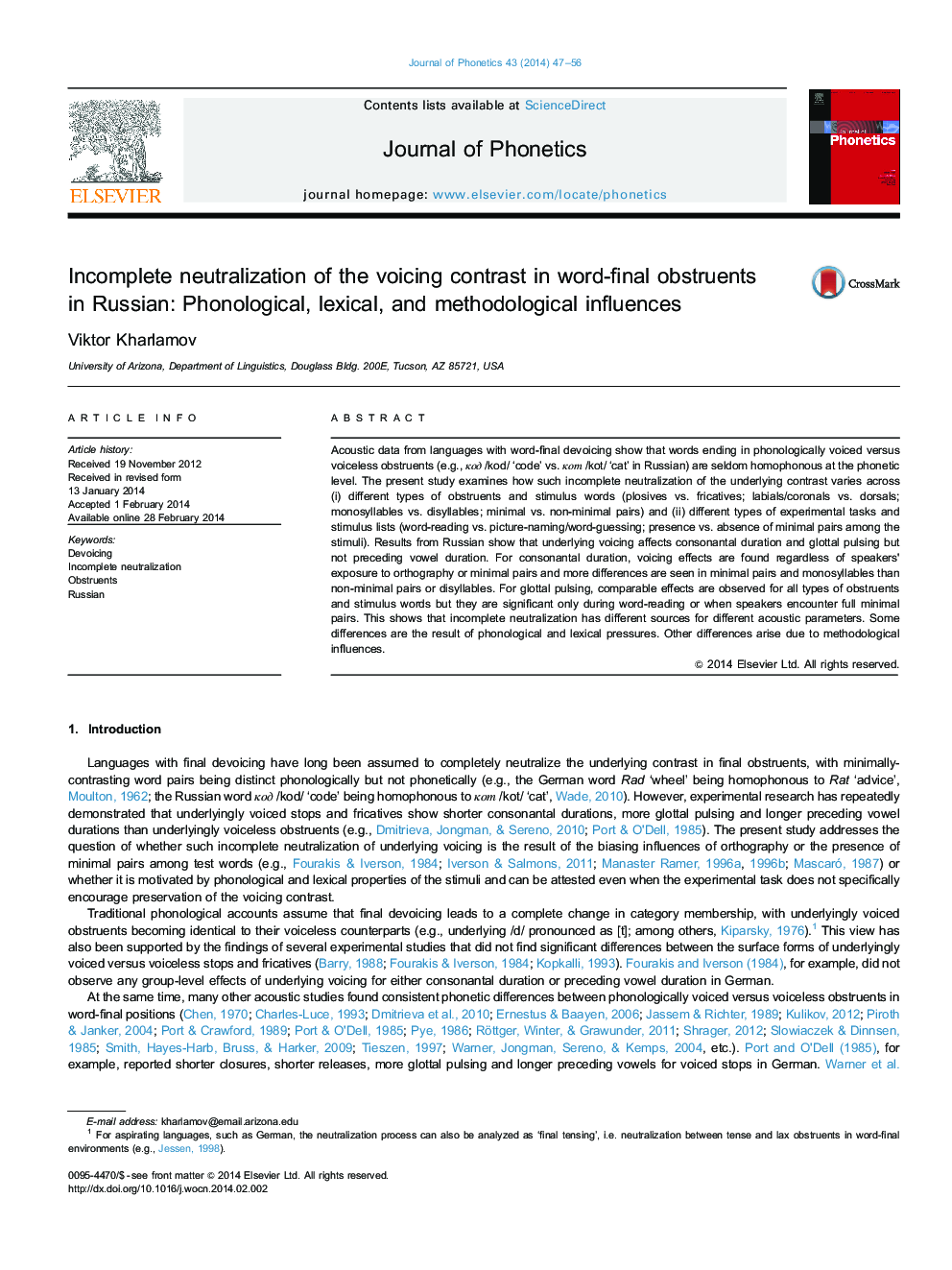| Article ID | Journal | Published Year | Pages | File Type |
|---|---|---|---|---|
| 1100763 | Journal of Phonetics | 2014 | 10 Pages |
•Results of an acoustic production study of final devoicing in Russian are reported.•Incomplete neutralization is found to have different sources for different acoustic parameters.•Differences in consonantal duration reflect phonological and lexical pressures.•Differences in glottal pulsing arise due to methodological influences.
Acoustic data from languages with word-final devoicing show that words ending in phonologically voiced versus voiceless obstruents (e.g., код /kod/ ‘code’ vs. кот /kot/ ‘cat’ in Russian) are seldom homophonous at the phonetic level. The present study examines how such incomplete neutralization of the underlying contrast varies across (i) different types of obstruents and stimulus words (plosives vs. fricatives; labials/coronals vs. dorsals; monosyllables vs. disyllables; minimal vs. non-minimal pairs) and (ii) different types of experimental tasks and stimulus lists (word-reading vs. picture-naming/word-guessing; presence vs. absence of minimal pairs among the stimuli). Results from Russian show that underlying voicing affects consonantal duration and glottal pulsing but not preceding vowel duration. For consonantal duration, voicing effects are found regardless of speakers' exposure to orthography or minimal pairs and more differences are seen in minimal pairs and monosyllables than non-minimal pairs or disyllables. For glottal pulsing, comparable effects are observed for all types of obstruents and stimulus words but they are significant only during word-reading or when speakers encounter full minimal pairs. This shows that incomplete neutralization has different sources for different acoustic parameters. Some differences are the result of phonological and lexical pressures. Other differences arise due to methodological influences.
